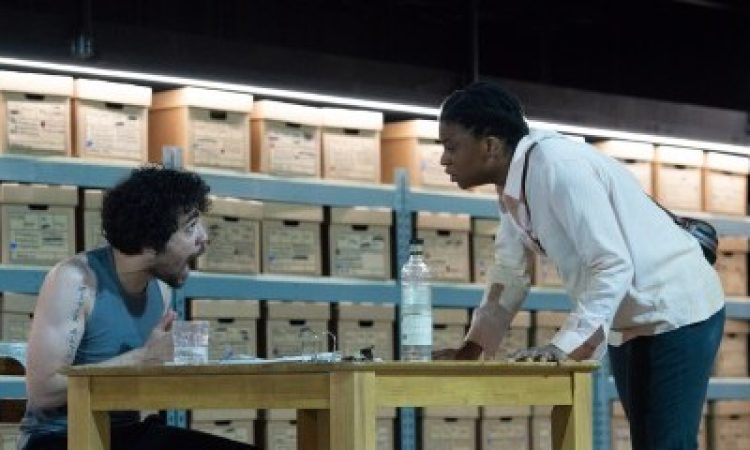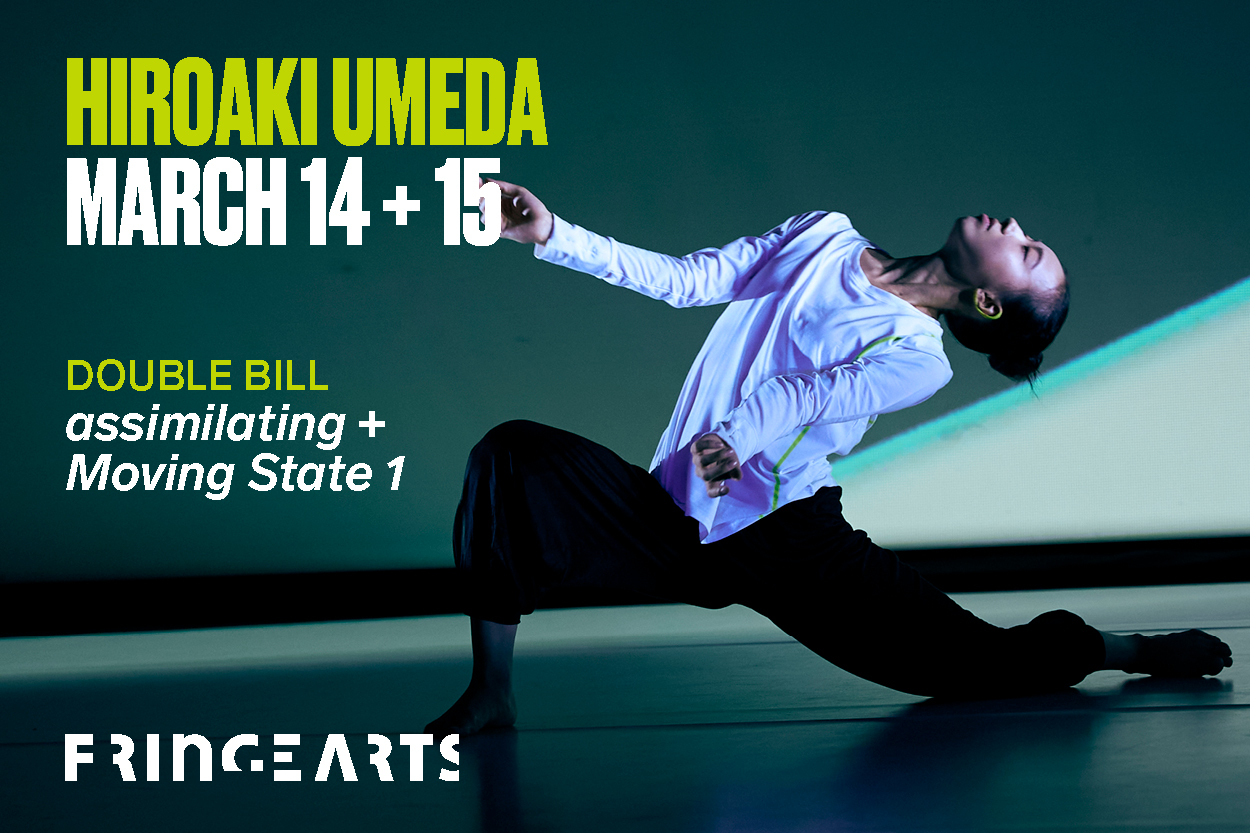Theatre Philadelphia and thINKingDANCE continue our partnership, begun in 2018, bringing coverage and new perspectives to Philadelphia’s vibrant theatre scene.
As soon as Describe the Night lets out, I duck into a chair in the lobby of the Wilma to Google: “Isaac Babel Russian writer”—“Nikolai and Yevgenia Yezhov”—“Smolensk plane crash 2010.” Traversing a 90-year span (1920 to 2010) in Eastern Europe, the play mixes historical fact with fiction; Babel, a real Russian author in the early 20th century, actually did have an affair with the wife (Yevgenia) of real Soviet secret-police chief Yezhov. But Yezhov’s wife did not in fact cook a pot of “Qureshi,” a fictional leech-and-blood soup of “Polish origin,” for a young KGB agent that not-so-subtly alludes to Vladimir Putin. When I glance up, I notice a large timeline on the wall outlining the true events referenced over the course of the play. Lest you are a scholar of Russian literature and history, I suggest you start your journey here at the Wilma; otherwise you may find yourself, as did I, sifting through the plot of the play hoping the facts and the fiction will separate themselves out.
In keeping with my confusion about chronology, Describe the Night expressly examines the illusion that truth and lies are discrete, black-and-white concepts. When Babel (played by Ross Beschler) and Yezhov (a hulking Steven Rishard) are introduced in the darkness of a forest in the midst of the Russo-Polish War, their conversation centers on the gray areas of language. Is there a difference between an outright lie and a truth that has been slightly tampered with? Is fiction in the eye of the beholder? Is it benign? Yezhov has just killed a man and grapples with his conscience; though Babel seems unperturbed, Yezhov is obsessed with tossing the truth back and forth until it has been molded anew.
Yezhov, though possibly the least sympathetic of the cast, is the most complex. I assumed the central conflict between Babel and Yezhov—a Gaston-esque brute with a taste for violence, a disdain for his wife, and an affinity for Stalin—would center on the wife’s affair. I was wrong. After Yezhov drills into a bemused Babel that, should he ever be arrested, he must never confess to anything, no matter what, Yevgenia (Sarah Gliko) reprimands Babel’s naïveté and warns him, “Nikolai has had ‘friends.’ And nobody knows where they are anymore.” Later, Babel insinuates that he and Yevgenia have an open relationship: that she lives in Paris where “there are no rules.”
When Yezhov stealthily meets Babel in a subsequent scene, pulling him into an abandoned building to warn, again, that Russia is quickly becoming inhospitable and he must flee, Yezhov reveals that he too plans to escape and has had Yevgenia committed to an insane asylum for her own protection. When Babel protests (they are in the thick of their affair), Yezhov grabs him by the shoulders and asks, softer than we’ve seen him, “Hypothetical notion! That say, for example, you and I left, the two of us, and went to Paris.… What would life… what would that look like?”
Yezhov has Babel arrested on fabricated charges, insisting that Babel has committed treason and his writings are proof. Babel recounts to Yezhov a “fictional” story he wrote about a man who is lost during a battle, who happens upon an old man burying his son and kills him out of pity, then decides to stay in the village nearby. The character dreams of building a new life where “strangers commingle, where men are kind… a place where men can love each other. Is there such a place? Where men can love each other?” The look on Yezhov’s face usurps any verbal reply he musters. I let out a soft “Oh” of understanding.
Is this an accurate description of historical events? Absolutely not: though Babel was indeed tried and executed on fabricated charges of treason, it wasn’t Yezhov who did the interrogating. In fact, the real Yezhov was executed just a few days later. Is there any indication that Yezhov’s sexuality was other than hetero? Not that I could find. Playwright Rajiv Joseph blurs fact and fiction in an attempt to question how we make truth, if it is something we have agency over. It’s no small question; yet, despite the two-and-a-half hours the play chews on the query, the plotline occasionally grasps at pseudo-profundity (I cringe when a character bemoans “a song of impossibility … only the cello is true”), rather than grappling honestly with questions of truth.
To join the conversation, follow thINKingDANCE and Theatre Philadelphia online and on social media to read, share, and comment.
Describe the Night, The Wilma Theater, January 28—February 8.





